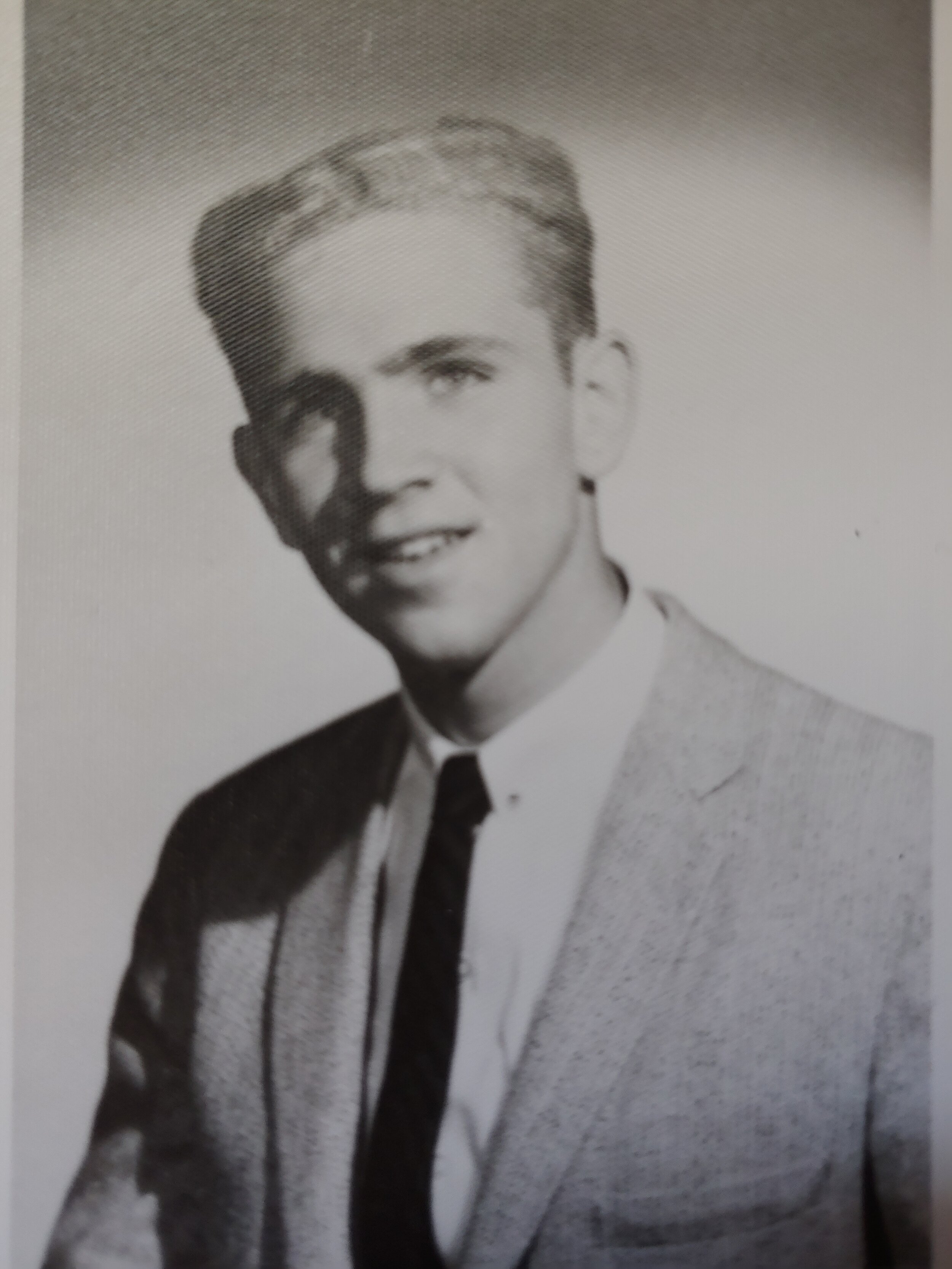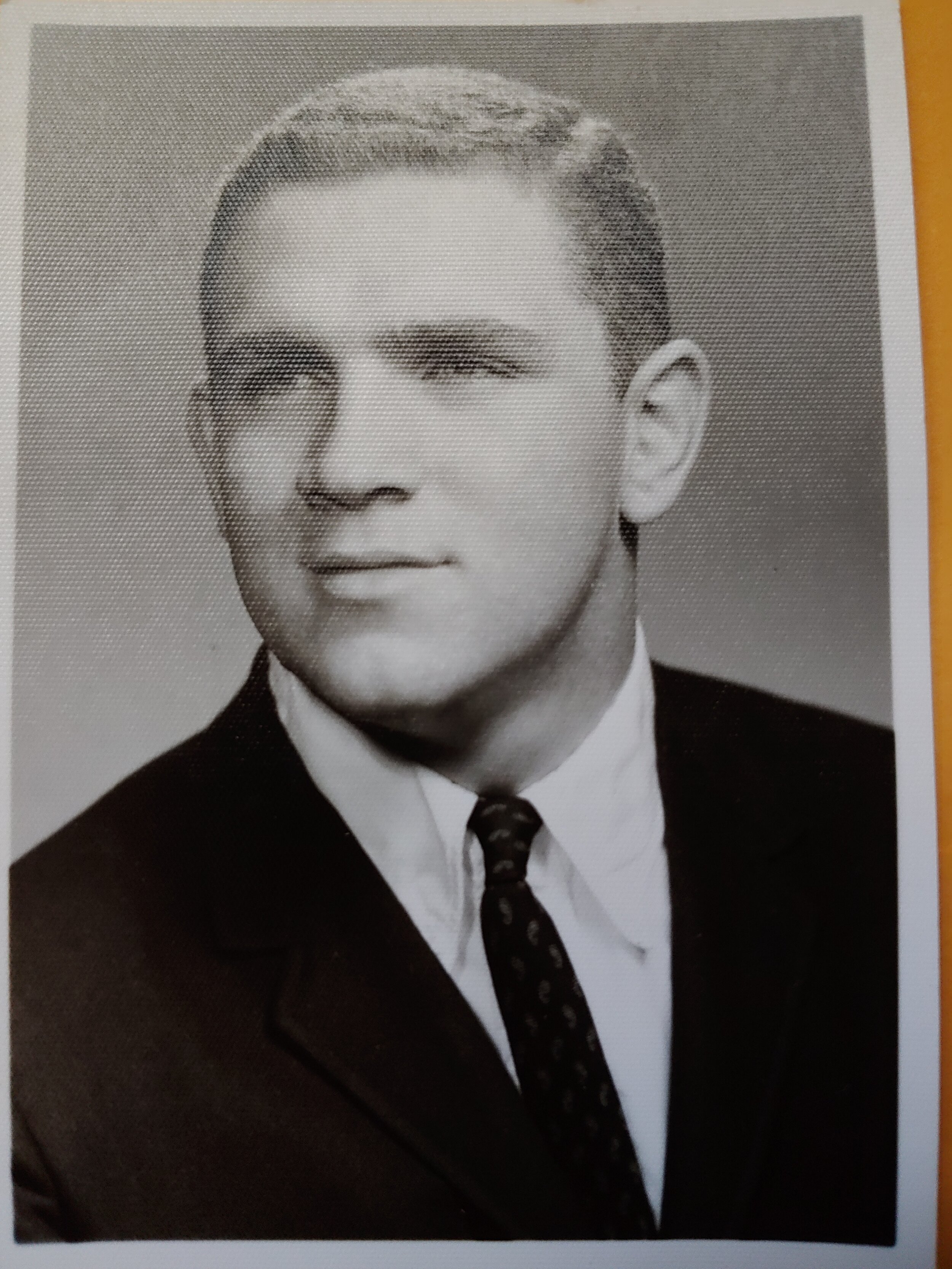Lion Of The Senate, Son Of Prince George's
Miller stands in front of the University of Maryland building.
Former Maryland Senate President Thomas V. “Mike” Miller Grew Up Reading About Maryland’s Heroes. Then He Became One.
By Raoul Dennis
This article first appeared in the Fall 2020 edition of Prince George’s Suite Magazine.
A new name will be added to the symbols of leadership in Maryland.






The June 29 announcement at the University of Maryland in renaming its main administration building after alumnus and longtime Maryland Senate President Thomas V. “Mike” Miller, Jr. was a relatively quiet process and ceremony. As compared with the wave of destroyed confederate statues and the renaming of schools across the country, assigning the main building in honor of the nation’s longest sitting state senate president was as silent as the turning of a page in history, a new chapter.
The university honored Miller for his lifelong dedication to higher education. The legislator was engaged in passing 1988 legislation that reorganized higher education in Maryland that designated College Park as the state’s flagship institution, the university said, and helped prioritize state funding.
It’s not the first time a building facility has been named honoring Miller. It’s actually the third. In 2001, the Miller Senate Office Building was opened as a result of the senator becoming the longest sitting senate president in Maryland history (now in the nation). In 2019, The Thomas V. “Mike” Miller Jr. Center for Leadership Programs and Services [at the College of Southern Maryland in La Plata] opened its doors. Designed to provide a learning hub for future generations of Maryland leaders, the Miller Center is another testament to the senator’s grounding in education at all levels.
But if education is at the heart of Miller’s legacy, people are the soul.
To this day, the senator says that the best thing about working in the family’s general store in the 1960s, BK Miller’s Meats & Liquors in Clinton, MD where he was raised, is that it taught him how to deal with people.
“I didn’t mind the work,” Miller says of the days his biggest motivation was in saving enough money, $900, for the right ride—a 1966 aqua and white Chevrolet. “In the process I met all kinds of people. I got to know them and they got to know me. I learned that people are not that different from one another. I got to learn what’s important to them and most importantly, I learned that the customer is always right. Take care of people and they will take care of you.” It was a lesson - and a message - Miller would apply throughout his career in law and politics.
Work wasn’t the only place the Clinton native gathered people skills. Summer days included softball and nights and were filled with teen club dances and bowling leagues. Athletic, quick-witted and fashionably dressed, young Mike Miller handled himself well on the dance floor. Integration and crossing color lines didn’t come easy for everyone in southern Maryland but the future lawmaker had no trouble with diversity: Things were changing across the country and Maryland along with it.
Sen. Miller joins legislators and county leaders (County Executive Angela Alsobrooks) in the effort to build schools in Prince George’s through the Built To Learn Act.
Lansdale G. Sasscer Jr
But Miller’s social calendar always competed with his first love: the storied heroes of American history and politics. From the beginning he says, it came down to the complex characters of the heroes--whether it was the leading man or the fallen general, from fiction’s Atticus Finch to the nation’s James Monroe to Maryland’s Frederick Douglass.
“I was drawn to the good and the bad in American history,” he said. “The first nine presidents were all slaveholders but they also had qualities about them which allowed them to build a nation. It’s true today: Winston Churchill, Martin Luther King, William Jefferson Clinton: All amazing men but you have to judge the good with the bad. You have to read constantly to see the different sides of people and judge them fairly.”
It was an adoration that served him well throughout his career, applying the lessons of history to his own maneuverings in the Maryland Senate. Miller’s early inspirations gave him the spark toward politics after earning his law degree in 1967. “He was a local hero,” Miller says of Landsdale Sasscer, Jr. Sasscer was also a hero to young Miller whose influence and swagger impressed him. But it was Ernest Loveless, Jr., who hoisted Miller as a young professional, helping him to land his first legal position after Miller graduated law school.
Miller got his first job working for a title company in Upper Marlboro but it wasn’t enough for a man raising a family. Loveless, a chief judge in Upper Marlboro, knew the young attorney. The judge’s daughter was in Miller’s mother’s campfire group. “He and my parents were active in the local Parent Teachers Association and he and my father were both World War II veterans and active in the VFW and American Legion,” the statesman says.
“He helped in getting me a job as a law clerk [with Judge Robert B. Mathias],” says the silver haired Miller with a smile. It was a step up that paid $5,000 more per year but it was also the first step toward a full throttled political career. Both Loveless and Mathias recommended Miller to serve as legal advisor to the Prince George’s House delegation. In 1971, he was elected to the Maryland House of Delegates from the third legislative district of Maryland in Prince George’s.
Miller with Christine Wray, president of MedStar Southern Maryland Hospital Center
The 77-year-old muses today about the early years. He’s come a long way from serving as driver to Frank Small, Jr. and being the some-time babysitter for Larry Hogan, Jr. Those were the days when the senior Hogan worked as Small’s public relations manager. And then there was the business of raising a family. “We had four diaper pails outside a two-bedroom apartment,” Miller quips of the Greenbelt Lake apartment he and wife Patricia shared when their five children rambunctiously ruled the house.
Always quick witted, Miller warms an audience before making his remarks. PHOTO: RAOUL DENNIS//PRINCE GEORGE’S SUITE MAGAZINE & MEDIA
The Annapolis office looks more like a library than the working headquarters of a man who led Maryland politics for nearly 35 years. If there is a computer in the room, it’s as significant as any pencil sharpener might be. Although he spends much of his time at openings, receptions and ribbon cuttings, Mike Miller asserts himself on the issues important to Marylanders with continuing passion and vigor. “We had to fight the governor to put the money back in,” he says of education funding in 2018. The county was successful in securing $1.2 billion in education funding that year. And the veteran Democrat wasn’t done yet: he was digging his heels in for a fight for Kirwan funding (the Senate voted 37-9 to approve the recommendations of the Kirwan Commission). And the effort to secure funding to rebuild schools—some in the county that have been aging for over 20 years—was part of the agenda. “There’s going to be some tough voting,” Miller proclaimed at Forest Heights Elementary School November 2019 at the press conference for the Built To Learn campaign. He wanted $2 billion to build 10 schools. “This school is abandoned right now and we want to bring it back,” Miller said of Forest Heights where former Maryland Senator Ulysses Currie taught years ago. “The governor said this $125 million passed last year was instead of Kirwan. In other words, build schools but nothing inside the schools: no teachers’ salaries, no smaller classroom sizes, no Pre K, no special education funding. That’s not good enough. I’m here to tell you: We made a commitment. We are going to fund Kirwan this year. We are going to bring the governor along and we are going to make it happen.”
Although in March, COVID-19 shut down the Maryland legislative session for the first time since the Civil War, the fight for Kirwan was teeing up to be a legislative tête-à-tête on Miller’s favorite battleground: education.
The senator says his best work included education issues and that he’s particularly proud of the legislation he forwarded that supported women. Young Miller, the eldest of his siblings and father of four daughters, sought to bring balance and opportunity to families as a lawmaker. “In a divorce in Maryland, women were historically unable to have land and other property allotted to them,” Miller says of one example of institutionalized discrimination against women that he addressed. “We changed that law so that women got a fair split of property at divorce.” Miller also addressed community development funding, health care, “Jessica’s Law,” Silver Alert, workforce and economic development and Automatic Voter Registration through bills he supported.
The Miller Center
Thomas V. Mike Miller Jr. Center for Leadership Programs and Services [at the College of Southern Maryland in La Plata] was created for students with an interest in public service and public policy.
“He’s a legend…And he’s re-elected [as Senate president] by his colleagues every year. This is a business of ambitious people. And if there were people who thought they could beat Mike Miller, he wouldn’t be the longest-serving in that position,” said U.S. House Majority Leader, Rep. Steny H. Hoyer at the opening. The event was a who’s who in Maryland politics of some 300 leaders, elected officials, educators and business owners (See “In The Name Of A Statesman,” www.pgsuite.com/news)
“Mike Miller has been a great friend to me, my family and my business,” says Steve Proctor of G.S. Proctor & Associates. The lobbyist leads the largest black-owned firm in Maryland. “He has always been there and he has given us the best advice and support over the years.” (See “It’s Miller Time,” click here.)
The Road Ahead
Newly elected Maryland Senate President Bill Ferguson shared a story about his visit to the home of his predecessor at a March 2020 meeting of the Greater Prince George’s Business Roundtable.
“I went down to his home,” Ferguson said of the senior statesman who is battling cancer. “It has been a long hard battle but it’s remarkable how well he is doing. We sat by [Miller’s] pool and he was still giving me tips. It’s difficult to express how grateful I am to have his experience and his mentorship. He has been an incredible guide through this whole process.” (See “Education In Politics” click here)
Maryland Senate President Bill Ferguson
Ferguson’s ascension is part of a generational shift in the General Assembly. Adrienne Jones became the first woman and the first African American elected Speaker of the Maryland House of Delegates in 2019 along with a number of new representatives to the state’s lawmaking body.
“We are in the midst of change,” Ferguson said of the current environment in Maryland politics. “The Senate leadership positions - in the standing committees and other leadership positions - from 2018 to 2020 - there is not a single position that has the same person in that role. That’s a very abnormal thing for the Maryland Senate which is a bedrock institution.”
But the respected lawmaker isn’t pleased with today’s political landscape. “American politics today are very upsetting to me,” Miller says, his voice sinking into the deeper octaves of his range. “This is breaking my heart—especially with this pandemic. We used to reach across the isle and compromise. No more. There’s no direction.”
He notes the importance of Democrats taking the Senate in addition to the White House in order to see a change in the current direction but he’s skeptical of that happening. “We need to get four seats but I’m not sure we can get them.”
Like many, Miller admits that he’s never seen the nation in such turmoil on its core democratic values. “It has to bottom out first,” he says. “We will have to hit the bottom but I believe as a nation we’ll come through it.”
Prince George’s is well positioned Miller says. Politically, he specifically mentions Angela Alsobrooks, Mel Franklin, Sydney Harrison and Calvin Hawkins.
Miller was a titan of Maryland politics who carried himself as a public servant from Prince George’s: “Let me know if you need anything.”
“Prince George’s County is currently in excellent hands with the County Executive and it has a fine county council. These are good honest people and then there are tremendous senators and delegates, as well. I’m very proud of them.”
Miller’s own mark on Maryland politics is indelible. He’s forged a place alongside those who charted the course for the Free State and added a page to its story.
His days are full. Still practicing law at his firm of 50 years, the senator spends time at his Clinton office every day. He spends more time than he’d like to in doctor’s offices and in labs in his fight with prostate cancer. There’s not much choice there: if Patty wasn’t enough to keep the senator focused on his medical regimen, two of Miller’s daughters, themselves health professionals, stay anchored in his ear. The patriarch now has 15 grandchildren and he’s still a sitting senator. Miller says he’s not working on a biography: “it’s really hard for me to be totally objective about life in politics,” but stays the course in reading about the lives of others.
“I’m reading a new book on Douglass,” the senator said nodding toward a center table where sits a hardcover on the 19th century abolitionist and publisher. “I read a couple of books at a time and I still enjoy it as much as ever.” The interview winds down as the senator has plans at his office in Clinton. He stands and reached out to shake hands---something doctors asked him to avoid----and leans in as if to share a secret. “Thank you,” he said. “Let me know if you need anything.”











